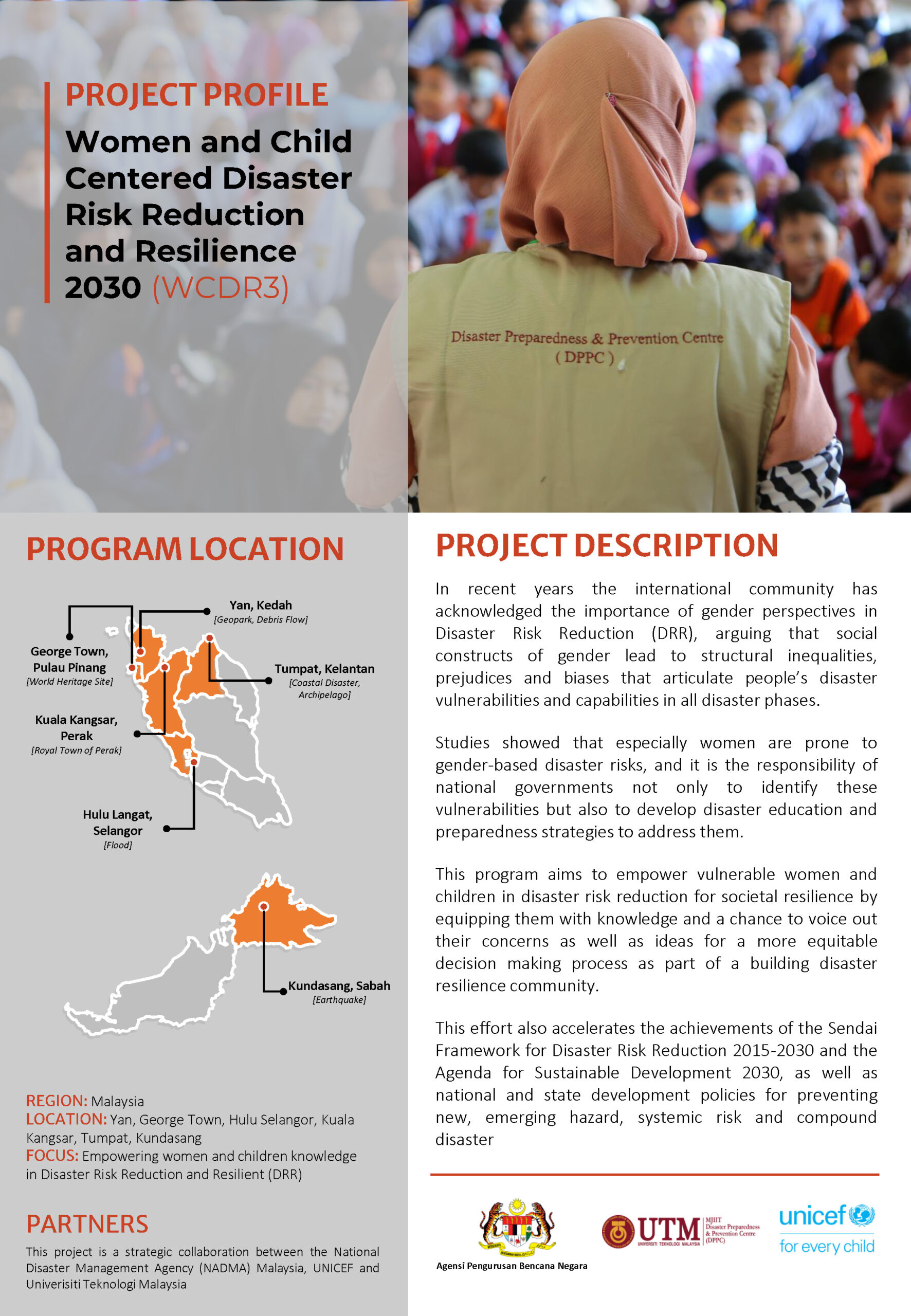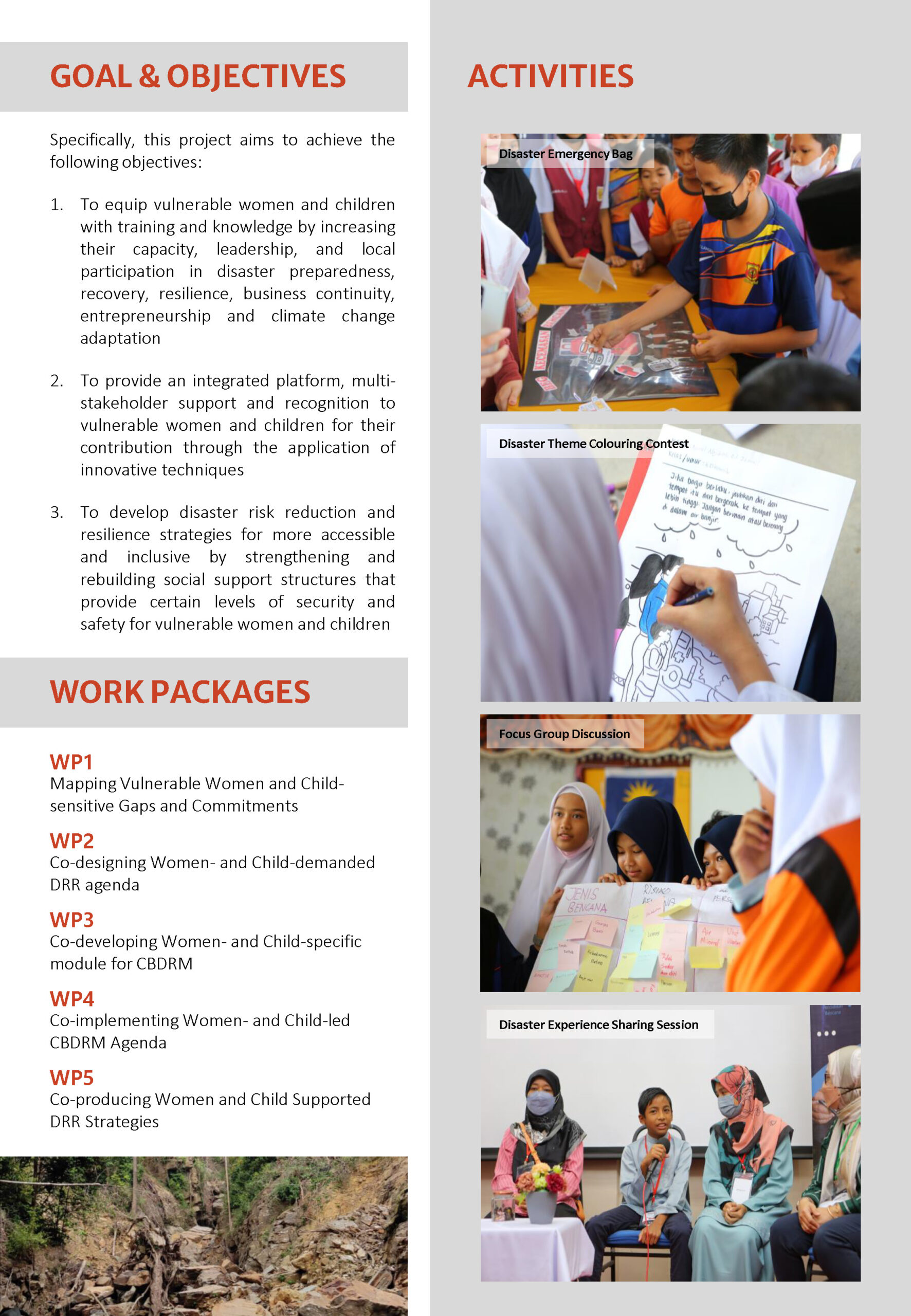Women and Child Centered Disaster Risk Reduction and Resilience 2030 (WCDR3)
In recent years the international community has acknowledged the importance of gender perspectives in Disaster Risk Reduction (DRR), arguing that social constructs of gender lead to structural inequalities, prejudices and biases that articulate people’s disaster vulnerabilities and capabilities in all disaster phases.
Studies showed that especially women are prone to gender-based disaster risks, and it is the responsibility of national governments not only to identify these vulnerabilities but also to develop disaster education and preparedness strategies to address them.
This program aims to empower vulnerable women and children in disaster risk reduction for societal resilience by equipping them with knowledge and a chance to voice out their concerns as well as ideas for a more equitable decision making process as part of a building disaster resilience community.
This effort also accelerates the achievements of the Sendai Framework for Disaster Risk Reduction 2015-2030 and the Agenda for Sustainable Development 2030, as well as national and state development policies for preventing new, emerging hazard, systemic risk and compound disaster

